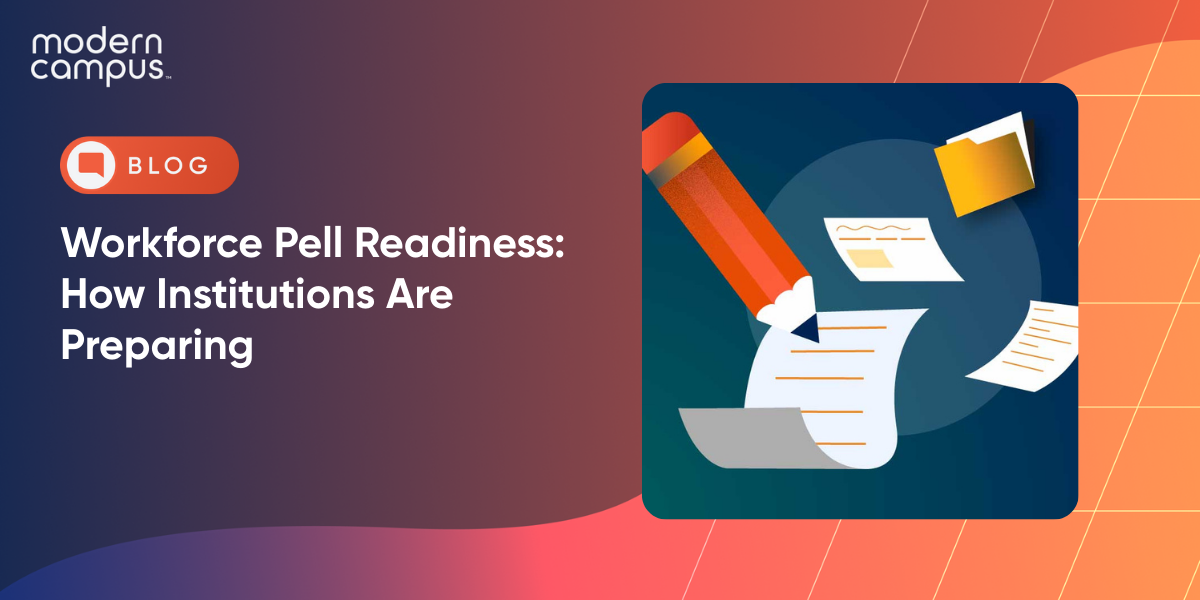Registrars Want More Impact on Learners and Less Obstacles
No one works in higher education without having a genuine passion for supporting learners. After all, it’s an industry where every facet is geared toward encouraging people to transform their lives!
Even still, across the industry, there’s been a long-held misconception that those in the Registrar’s Offices are more focused on policy than people.
But recent research from AACRAO—developed in partnership with Modern Campus—shows that this isn’t the case.
In a survey of over 900 higher education leaders—two-thirds of whom serve as their respective institution’s registrars—79% said that registrars should be actively involved with student engagement across the student lifecycle.
That means rather than focusing on enforcing rules, survey respondents believe registrars have a role to play in supporting learner persistence, retention and success. In fact, 88% of respondents said that registrars should be actively engaged with strategic enrollment management efforts at the institution.
And this fits with meeting the expectations of modern learners. According to Ray Darling, Registrar at the University of Guelph, shifts in the cost and need for higher education mean the relationship between the institution and learner has changed—with Registrars placed squarely in the middle.
“I say to my team, ‘Our students are our customers.’ I know it’s not always in vogue to call students customers, but that’s really what they are,” he said in an interview with The EvoLLLution. “Of course, students are not customers in the classroom; they are not paying to get an A or a credit. But outside of the classroom, we are customer-focused. We do have to maintain the academic integrity of the institution, set up policies and enforce them, but we also need to provide a great student experience.”
This student-centricity, according to Darling, means a close examination of how different policies and processes impact learners. Importantly, it means finding ways to automate things that were once manual—critical in a role that’s centuries old!
“Registrars have been around for 500 years—one of the oldest university positions,” Darling said. “We are definitely perceived as gatekeepers and number counters. But I have also seen a trend of increasing empathy and a willingness to understand the impacts of our policies and procedures on student mental health and success.”
When it came to prioritizing areas where Registrars should have the most impact, most respondents highlighted academic guidance first, followed by supporting retention and credential attainment efforts.
This makes sense, since at many institutions the Registrar is the local expert on curriculum management and degree progress.
However, according to the study, access to technology poses a significant barrier. In fact, 1 in 10 survey respondents highlighted technology as the most significant obstacle registrars face when implementing change that supports student success.
“Technology has been able to give us data analytics in a way that allows us to be proactive rather than reactive to students. But getting those resources to move forward can be somewhat difficult,” said Casey Bullock, Registrar and Executive Director of Enrollment Services at Weber State University, in an interview with The EvoLLLution.
Weber added that high-quality technology systems can make a huge impact when it comes to delivering the student-centric experience modern learners expect.
“As students interact with the Registrar’s Office, it’s not face-to-face anymore. Instead, they’re interacting with us through our computer systems,” he said. “If our computer systems aren’t designed intuitively or aren’t user-friendly, it reflects on the campus.”
Last updated: June 30, 2022



